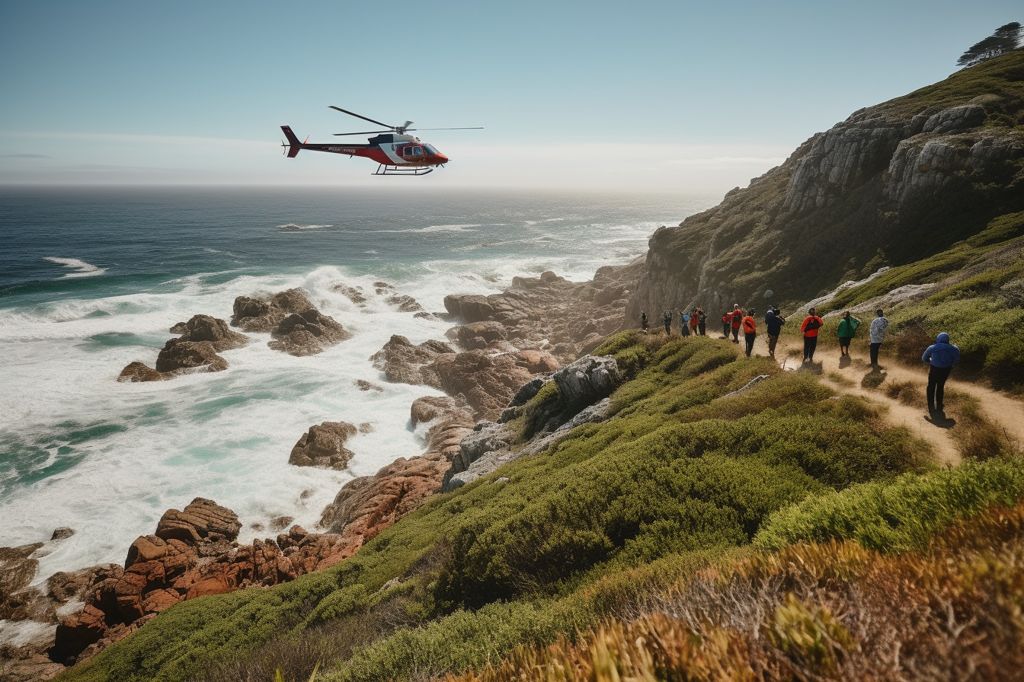The recent rescue of 14 hikers from the Tsitsikamma hiking trail in South Africa is a testament to the bravery, teamwork, and dedication of multiple rescue crews who faced treacherous weather conditions to save them.
Stranded Between the Rain-Swollen Lottering and Elandsbos Rivers
The group, consisting of nine women and five men, twelve of whom were university students, found themselves stranded between the rain-swollen Lottering and Elandsbos Rivers on the north-eastern side of the Bloukrans River. Despite being well-equipped, they faced the perilous challenge of crossing these dangerous waters.
The Rescue Operation
On May 12, the National Sea Rescue Institute (NSRI) Knysna received a distress call from a concerned parent, initiating an expertly coordinated rescue operation involving land and water crews from various organizations. Upon receiving the distress call, NSRI Knysna informed the NSRI Oyster Bay and NSRI Storms River duty crews, who immediately began a joint rescue operation.
Communication and Coordination
The stranded hikers were instructed to stay put and stay warm, as rescue crews communicated with them throughout the night, using WhatsApp to stay in touch and taking turns standing guard and gathering firewood for warmth.
Joint Operations Command Centre
In an extraordinary display of collaboration, a Joint Operations Command Centre was established, led by the Eastern Cape Government Health EMS and the South African Police Services, and involving multiple organizations such as NSRI Oyster Bay, MTO (Mountain to Sea) Rangers, SA National Parks Tsitsikamma Rangers, Plettenberg Bay First Responders, and a Savannah Helicopters Squirrel helicopter.
Challenges and Successes
Rescue teams faced numerous challenges, such as finding a suitable landing zone for the helicopter. However, they successfully located the hikers and assessed their condition with rescue paramedics. Three of the hikers required treatment for mild smoke inhalation. Skillfully, rescue teams tightened and inspected an existing rope across the Lottering River, enabling the stranded hikers to cross the water in relays, one at a time.
Air Lift and Assessment
Once across the river, the hikers were escorted to the Keurbos Hut, where they warmed up before hiking to the helicopter landing zone. Upon reaching the landing zone, the hikers were airlifted to the Lottering Forestry Station’s Joint Operations Command Centre, where they were greeted by relieved parents and assessed by EMS paramedics to ensure their well-being.
Impressive Cooperation and Teamwork
The successful rescue of the hikers demonstrates the impressive cooperation and teamwork of various organizations and their dedication and expertise in ensuring the safety and well-being of the stranded group in extremely challenging circumstances.












